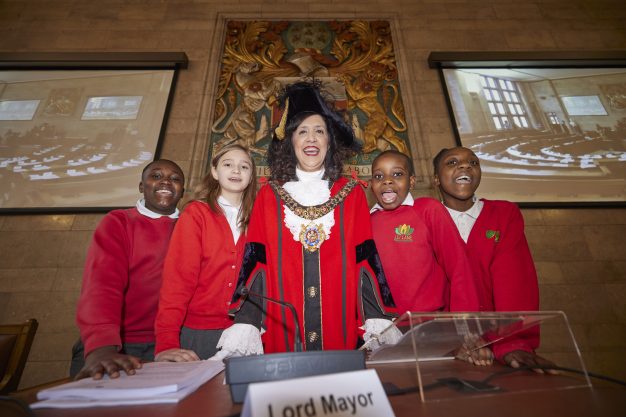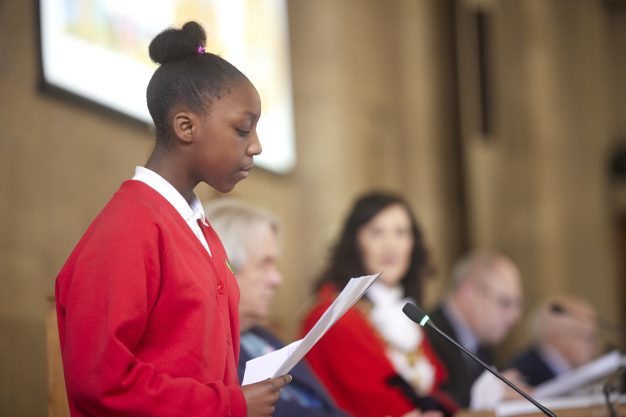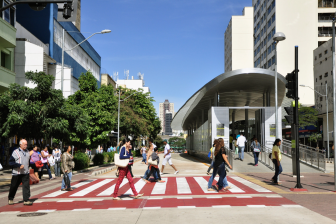
UK cities and towns step up the push for UNICEF child-friendly city status
Manchester has ramped up its bid become a UNICEF child-friendly city after what it calls a ‘record-breaking’ consultation with local young people.
Children and youth took over the town hall to tell city leaders precisely what they want from them if they are to earn this prestigious title for one of England’s biggest cities.
More than 11,000 children and young people – almost 1 in 10 of the city’s under-18s – responded to the city-wide consultation held over six months.
It’s just coming up to two years since Manchester was first accepted onto the UNICEF Child Friendly Cities and Communities programme, kicking off a three to five-year process during which time local leaders, working alongside the global charity, must demonstrate their commitment to improving children’s rights.
That process is now well advanced, having already seen 2022 celebrated as Our Year – a year-long festival of events and activities for young people in a city of some 550,000 people. Manchester has had to show, through meaningful examples, that it is a place where more children feel safe, heard, cared-for, and able to flourish, through the changes it makes.
‘Young people told city leaders what they want’
Manchester City Council, working closely with children and young people, has picked out specific areas of focus – known as ‘badges’ – that it must work towards before it can be recognised as a UNICEF Child Friendly City. Those top three badges are: Safe and Secure, Place, and Healthy.
The city must also focus on a further three core badges – Culture, Co-operation and leadership, and Communication – and has also challenged itself to achieving a seventh badge, Equal and Included, as a thread which knits everything together.
Virginia Collins, Member of Youth Parliament for Manchester said: “We’re asking councillors to act on the badges that have been chosen as they are the issues of young people, chosen by young people.”

“Each of the badges have been identified by young people as issues that are real and important to us. We’re therefore asking councillors to act on these badges, to help preserve each of the 42 articles in the United Nations Convention on the Rights of the Child, and most importantly not to try to second guess us just because we are young.”
Councillor Garry Bridges, Executive Member for Early Years, Children and Young People, Manchester City Council, said that that they were determined to build on the Our Year programme and its legacy. “After the pandemic we supercharged our ambition for children and young people- with the successful Our Year programme and its legacy and we’re determined to build on this and make the city the very best place it can be for every child and young person to grow up in.
We can only do this by listening to children themselves
“We can only do this by listening to children themselves. The fact that 11,000 children across the city have taken part in this consultation is incredible and gives us real confidence that we’re getting the message on what matters to them.
“Anyone who has worked with children and young people will know they are often very clear about what they think. As a city our job now is to respond to their demands and make positive changes that involve and benefit them.
“Children have told us they want to be safe and healthy and live in communities that are cared for and have things to do. This shouldn’t be too much to ask for and we all need to make this happen.”
And it’s not just the large cities like Manchester that are keen to join the UNICEF programme – it is also an attractive proposition for regional boroughs, and one of those is Sandwell, in the West Midlands.
‘Challenges for children are greater than ever’
Not a city as such, Sandwell (location shown below) is nevertheless is a large metropolitan borough with several towns including West Bromwich, and a population of over 300,000 people, and now Sandwell Council has applied for UNICEF Child Friendly Borough status, with all the benefits that brings.
Outlining their plans, Kerrie Carmichael, the Leader of Sandwell Council, said: “Sandwell Council has pledged that one of our priorities is that every child has the best possible childhood, regardless of where they live, how much their parents earn, their cultural heritage or their complex needs.
“The challenges for children and young people post pandemic are greater now than ever – putting children centre stage encourages a conversation about what the future for children and young people living in Sandwell should look like.”
It will now follow the same process as Manchester and other cities and towns, and the council has put together a working group to take forward the application to UNICEF.




